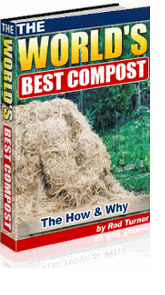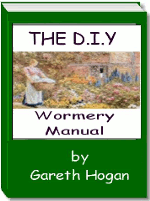.jpg)
Fungi thrive on dark, wet and cool places with decaying organic matter. I’m talking about your worm bin, of course. The worm bins are ideal places for fungi. An this is as organic as it gets. You see, “organic” agriculture refers to natural agriculture. Plants do not eat organic matter; only minerals with water. Plants make the miracle in this planet: they turn energy (sun) and inert compounds (fertilizer) into living tissue.
As a matter of fact, first there were plants then there were animals. There is nothing on earth that can do what plants do. Fungus is really an organic produce. Unlike plants, it cannot process inert fertilizers; it depends on decaying organic matter to grow. The worm bin has a lot of that, so it can get some mushrooms every now and then.
Not so many times, though. In the several years I’ve been doing vermiculture, I have had a few fungi in the worm bins, but it is really rare. Luckily, humus is not very good for fungi. Humus has little decaying matter; worms take care of that. What fungi use is the decaying matter before worms can eat it.
Fungus are of no concern to the worm bins or yourself (unless you eat them)
You can say that they compete with worms for food, but I wouldn’t worry too much about that; they don’t take too much and worms will not complain about that.
Fungi, as long as they are saphrofites (feed on dead matter), are not a concern for your worm bin. They can be an annoyance, but not that much. You can just poke them out and leave them there for the worms to eat. If you can identify them, maybe you can make a nice meal, but I don’t take risks… with so many of this things that can get you high or dead, better safe than sorry.
Anyway, it will not be uncommon to see a couple of these in your worm bin. Just remember that they are not harmful for your vermiculture installation and they are just part of the flora and fauna you will find with your worms.
Found what you where looking for?





